Confirmed speakers
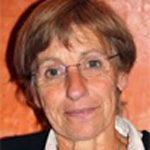 |
Bernadette Bensaude-Vincent, Université Paris 1 Panthéon Sorbonne, France Read biography Bernadette Bensaude-Vincent, professor at Université Paris I Panthéon-Sorbonne, is a philosopher and historian of science. Her research topics span from the history and philosophy of chemistry to material science and biotechnology, with a continuous interest in the interplay between science and society. Her publications include the books Bionanoéthique (2008), Les Vertiges de la technocience. (2009), Fabriquer la vie. Où va la biologie de synthèse (2011). She is member of several ethics committees in French institutes (CNRS, Toulouse White BioTechnologies) and European Programmes (Agreenskills and Graphene Flagship). Together with Isabelle Stengers she received the Prix Jean Rostand for Histoire de la chimie in 1994 and the Dexter Award for outstanding achievements in the History of Chemistry in 1997. She is a member of the Institut Universitaire de France and of the Académie des Technologies. |
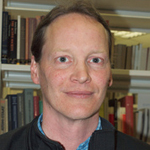 |
Christopher Coenen, ITAS, Karlsruhe Institute for Technology, Germany Read biography Christopher Coenen is a senior researcher at the Karlsruhe Institute of Technology’s Institute for Technology Assessment and Systems Analysis (KIT-ITAS). Trained as a political scientist, he has worked for ITAS since 2003. Before moving to Karlsruhe in 2009, he worked at the Office of Technology Assessment at the German Parliament (TAB) in Berlin, which is run by KIT-ITAS. As team member or project leader, he has conducted more than 15 projects on behalf of institutions such as the German Parliament, the European Parliament and the European Commission. Currently, he is in charge of the coordination of the EC-funded project SYNENERGENE on synthetic biology, a large-scale stakeholder and public dialogue action plan with more than 20 partners from three continents. Moreover, he is the Editor in Chief of the journal NanoEthics. Studies of New and Emerging Technologies (Springer), the ‘KIT Expert’ on the topic ‘human enhancement’, and a member of the board of S.NET, the Society for the Study of Nanoscience and Emerging Technologies. He also co-initiated ‘ITAS SynBio’, the ITAS Working Group on the Governance of Synthetic Biology. Christopher Coenen’s main fields of interest are societal, political, philosophical, cultural, economic and historical aspects of synthetic biology, biotechnologies, nanotechnology and converging technologies; neurotechnologies; ‘human enhancement’; and the role of information and communication technologies in society. |
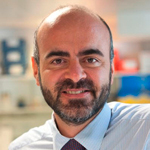 |
Paolo De Coppi, University College London, Institute of Child Health, London, UK Read biography Paolo De Coppi is the NIHR Professor of Paediatric Surgery and Consultant Paediatric Surgeon at the Great Ormond Street Hospital for Children and the Head of Stem Cells & Regenerative Medicine Section, Developmental Biology& Cancer Programme at the UCL Institute of Child Health, London, UK. He has a special interest in congenital malformation and their treatment using minimally invasive techniques. He has focused his research interests on stem cells and tissue engineering, trying to find new modalities for the treatment of complex congenital anomalies. While working with Dr A. Atala at the Childrens' Hospital in Boston-US, he had the opportunity of identifying a new source of cells for therapeutic applications showing the possibility of using stem cells from amniotic fluid. This finding generated an international patent and garnered the cover story of Nature Biotechnology January 2007. He has more recently focused on developing reliable methods for stem cell isolation, expansion and differentiation at a clinical level (GMP-grade). Finally, in 2010 he was part of the team that performed the first successful transplantation of a tissue-engineered trachea on a child at the Great Ormond Street Hospital. He has published more than 180 peer-reviewed articles in journals such as The Lancet, Nature Biotechnology, PNAS, Blood and Stem Cells; supervised more than 30 research fellow and Ph.D. students; and has been awarded various national and international grants. He is on the editorial boards of Stem Cell Development, Journal of Pediatric Surgery, Pediatric Surgery International, and Fetal and Maternal Medicine Review. As of 2011 he has been the senior associate editor for Stem Cell Translational Medicine. |
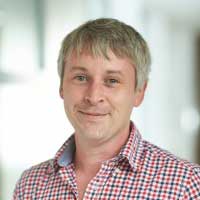 |
Dirk Heckl, Hannover Medical School, Germany Read biography Dirk Heckl was born in Northern Germany and received a Bachelor in Plant Biotechnology from the Leibnitz-University in Hannover. He obtained his Master in Biomedicine and his PhD in Molecular Medicine in 2011 at the Hannover Medical School. He was a postdoc at the Institute of Experimental Hematology and the Department of Pediatric Hematology and Oncology, Hannover Medical School and the Brigham & Women's Hospital at Harvard Medical School, Boston, USA. Since September 2015 he is Junior Research Group Leader at the Department of Pediatric Hematology and Oncology, Hannover Medical School, supported by the German Cancer Foundation Max-Eder programme. Dirk Heckl received the award for excellent performance in the bachelor programme in Plant Biotechnology, a student-award in the Master programme for Biomedicine and the Scientific Prize of Lower Saxony. In 2008 he received a Hannover Biomedical Research School stipend and in 2011 the Mildred Scheel fellowship of the German Cancer Foundation. Dirk Heckl's research projects are focused on the use of CRISPR-Cas9 based genome editing to decipher oncogenic cooperation and uncover susceptibilities in the pathogenesis of acute myeloid leukemia (AML). |
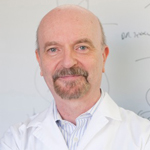 |
Victor de Lorenzo, National Center of Biotechnology, Madrid, Spain Read biography Víctor de Lorenzo (Madrid, 1957) is a Chemist by training and he holds a position of Research Professor in the Spanish National Research Council (CSIC), where he currently heads the Laboratory of Environmental Molecular Microbiology at the National Center for Biotechnology. After his PhD at the CSIC Institute of Enzymology (1983), he worked at the Pasteur Institute (1984), the University of California at Berkeley (1985-1987), the University of Geneva (1988) and the Federal Center for Biotechnology in Braunschweig until 1991, the year in which he joined the CSIC in Madrid. He specializes in Molecular Biology and Biotechnology of soil bacteria (particularly Pseudomonas putida) as agents for the decontamination of sites damaged by industrial waste. In 2001 this work received the National Award King James I for Environmental Protection. In June 2008 he was honored with the GSK International Award of the American Society for Microbiology, and in October of the same year he was granted a Grand Prix of the French Academy of Sciences. He is a member of EMBO (European Molecular Biology Organization) and the American Academy of Microbiology, and he has co-chaired the EC-US Working Group on Synthetic Biology. He has also Co-chaired the EC President’s Science and Technology Council. He has published over 250 articles in scientific journals and specialized books, and he has served as advisor of numerous international panels. At present, his work explores the interface between Synthetic Biology and Environmental Biotechnology. See divulgative video on his work at: |
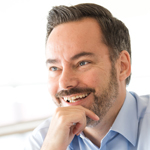 |
Kieron Flanagan, The University of Manchester, UK Read biography Kieron Flanagan is Senior Lecturer in Science and Technology Policy at the University of Manchester. Over more than 15 years he has taught and researched a wide range of science policy issues covering everything from the funding, management and evaluation of research through to the place of science and technology in government policy and regulation. He has special interests in the role of science in local and regional economic development and in the implications of an increasingly globalised scientific enterprise for national science policies. He engages closely with science policy-makers in the UK and elsewhere and is an active commentator on science policy issues in the specialist press, on social media and as a contributor to the Guardian newspaper’s science policy blog, Political Science (http://www.theguardian.com/science/political-science). |
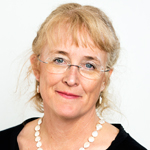 |
Maureen McKelvey, University of Gothenburg, Sweden Read biography Maureen McKelvey is Professor of Industrial Management (www.handels.gu.se/iie). Evolutionary Innovation: The Business of Biotechnology (Oxford University Press, 1996) is her most well-known book about business within biotechnology. It was awarded the International Joseph A. Schumpeter Society Prize for best scientific research (www.iss-evec.de). In this book, Professor McKelvey follows the intricate overlap of basic science, commercialization and legal regulation during the initial phases of recombinant DNA used to make pharmaceuticals. Biotechnology revolutionalised industry, both through small companies, through networks and through changing the resources of companies. She has published 36 scientific articles; 15 books; and 70 book chapters on issues related to innovation and entrepreneurship. She has built up the Institute of Innovation and Entrepreneurship, at the School of Business, Economics and Law at the University of Gothenburg, Sweden. Another key area of her scientific career has been teaching at Masters and PhD levels, as well as interactions with firms and public policy. Her expertise has been sought out by public policy makers, and she participated in: European Union DG Enterprise Business Panel on Future Innovation Policy; expert reference committees for the European Commission Joint Research Center Institute for Prospective Technological Studies (JRC-IPTS) report Consequences, Opportunities and Challenges of Modern Biotechnology for Europe and the Bio4Europe study for the European Parliament. Moreover, she was the author of the OECD report Health Biotechnology: Emerging Business Models and Institutional drivers. |
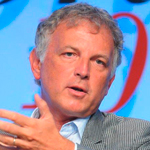 |
Luigi Naldini, San Raffaele Telethon Institute for Gene Therapy, Milan, Italy Read biography Luigi Naldini received his M.D. from the University of Torino, Italy in 1983 and his Ph.D. from the University of Rome in 1987. He carried out post-doctoral work in the U.S.A. with Yossi Schlessinger (1987-89) and was visiting scientist with Inder Verma and Didier Trono at the Salk Institute (1994-96). He then held independent appointments at Cell Genesys, California (1996-98) and the University of Torino prior to moving to Milan in 2002, where he is currently the Director of the San Raffaele Telethon Institute for Gene Therapy, Director of the Division of Regenerative Medicine, Stem Cells and Gene Therapy, and Professor at the San Raffaele University. In his early career, he identified the ligand for the Met receptor with Hepatocyte Growth Factor. For the last 20 years Luigi Naldini has pioneered the development and applications of lentiviral vectors for gene transfer, which have become one of the most widely used tool in biomedical research and, upon recently entering clinical testing, are providing a long sought hope of cure for several currently untreatable and otherwise deadly human diseases. Throughout this time he has continued to investigate new strategies to overcome the major hurdles to safe and effective gene transfer, bringing about innovative solutions that not only are being translated into new therapeutic strategies for genetic disease and cancer, but have also allowed novel insights into hematopoietic stem cell function, induction of immunological tolerance and tumor angiogenesis. Luigi Naldini has been President of the European Society of Gene and Cell Therapy (ESGCT, 2012-2014), Member of the Board of Directors (2005-2008) and the Advisory Council (2008-2012) of the American Society of Gene and Cell Therapy (ASGCT), has served on several Scientific Committees of the ASGCT, ESCGT, American Association of Cancer Research (AACR), International Society for Stem Cell Research (ISSCR), International Society of Cell Therapy (ISCT). He is member of EMBO, the European Molecular Biology Organization, since 2008 and was awarded the Outstanding Achievement Award from ASGCT in 2014. |
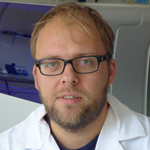 |
Carsten Nowak, Conservation Genetics Group, Senckenberg Research Institute, Gelnhausen, Germany Read biography Carsten Nowak studied zoology and molecular genetics and obtained his Ph. D. at the Goethe University, Frankfurt am Main, in 2007. Following a period of postdoctoral research at the University of Notre Dame, Indiana, he took over as Head of the Senckenberg Conservation Genetics Section in 2008. There, he established a wildlife genetics centre acting at the interface between science and applied species conservation. Using DNA forensics his team studies the return of elusive mammals, such as wolves, lynx and wildcats to Germany, and provides molecular support to various species conservation and monitoring projects throughout the palaearctic region. |
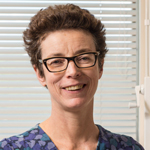 |
Anne Osbourn, John Innes Centre, Norwich, UK Read biography Anne Osbourn is a Project Leader at the John Innes Centre and Director of the Norwich Research Park Industrial Biotechnology and Bioenergy Alliance. Her research focuses on plant-derived natural products - function, synthesis, mechanisms of metabolic diversification and metabolic engineering. An important advance from the Osbourn laboratory has been the discovery that in plant genomes the genes needed to make particular natural products are often organised in clusters like ‘beads on a string’, a finding that has greatly accelerated our ability to find new pathways and chemistries of potential importance for the development of drugs and other useful compounds. Anne has developed and co-ordinates the Science, Art and Writing (SAW) Initiative, a cross-curricular science education outreach programme. For more information see: www.sawtrust.org |
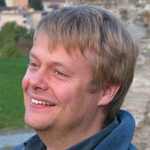 |
Sven Panke, ETH Zürich, Switzerland Read biography Sven Panke received his degree in Biotechnology from the Technical University of Braunschweig in 1995. Before that he worked for three years on the physiology and molecular biology of microbial degradation of xenobiotics at the German National Research Centre for Biotechnology (GBF, Braunschweig, Germany, with Ken Timmis) and the Centro de Investigaciones Biologicas (CIB Madrid, Spain, with Victor de Lorenzo). He received his PhD in 1999 from ETH Zurich, Switzerland, after a stay with Bernard Witholt for his work on the production of fine chemicals with recombinant bacteria. After a two year-stay in the pharmaproduct group of the Dutch chemical company DSM (Geleen, The Netherlands), he returned to ETH in 2001 as an Assistant Professor for Bioprocess Engineering. After receiving tenure in 2007, he moved to the newly founded ETH Department of Biosystems Science and Engineering in Basel. |
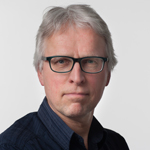 |
Dirk Stemerding, Rathenau Institute, The Hague, The Netherlands Read biography Dirk Stemerding is working as a senior researcher Technology Assessment at the Dutch Rathenau Instituut. He was one of the authors of the Rathenau study Getting to the core of the bio-economy: a perspective on the sustainable promise of biomass (2011). He participated in the European project Synthetic Biology for Human Health: Ethical and Legal Issues (SYBHEL 2009-2012) in which he was responsible for the work package on public policy. He also contributed to the STOA project Making Perfect Life: bio-engineering in the 21st century (2009-2012). He has been leading a work package on synthetic biology in the European project Global Ethics in Science & Technology (GEST 2011-2014) and was one of the editors of the volume Science and Technology Governance and Ethics: a global perspective from Europe, India and China (Springer 2015). As a participant in the European project Parliaments and Civil Society in Technology Assessment (PACITA 2011-2015) he coordinated a Future Panel project on public health genomics. He is one of the co-authors of a Rathenau study for the Council of Europe on converging technologies (2014). From September 2013 he is involved as work package leader in a four-year European Mobilisation and Mutual Learning Action Plan on synthetic biology (SYNENERGENE 2013-2017). In 2014 he published in collaboration with his colleague Virgil Rerimassie the Rathenau report SynBio Politics: bringing synthetic biology into debate. |
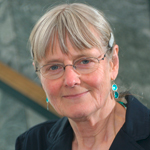 |
Joyce Tait, Innogen Centre, University of Edinburgh, UK Read biography Joyce Tait, Director of the Innogen Institute based in the University of Edinburgh, has an interdisciplinary background including natural and social sciences. Her research has covered agrochemical, pharmaceutical and life science industry sectors, focusing on: strategic planning for innovation; governance, risk management and regulation; and stakeholder attitudes and influences. Relevant life science areas include synthetic biology, genetic databases, GM crops, biofuels, pharmaceuticals, stem cell therapies and translational medicine. Current and recent appointments include: John Innes Centre Science and Impact Advisory board; UK Department for Business Innovation and Skills (BIS) Synthetic Biology Leadership Council (Chair of Governance Subgroup); UK Department of Health Emerging Science and Bioethics Advisory Committee (ESBAC); Board of Directors, Roslin Foundation; Scottish Science Advisory Council. She is a Fellow of the Royal Society of Edinburgh (FRSE), and received a CBE in 2005 for her services to social science. |
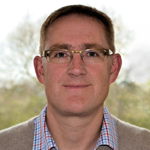 |
Simon Warner, Oxitec Ltd, Abingdon, UK Read biography Simon Warner, PhD, is currently Chief Scientific Officer at Oxitec Ltd, a start-up company pioneering novel insect control in public health and agricultural markets. As CSO, Dr. Warner is responsible for all R&D, scientific, and technology aspects of the company including IP, technology strategy, licensing, strategic partnerships, staff management, and fundraising support. Dr. Warner has 19 years of global commercial experience in biotechnology R&D in various roles at Syngenta in the United Kingdom and the United States, leading collaborative programs and delivering biotechnology products in crops for feed and fuel. Additionally, while at Syngenta he also worked as the R&D lead on technology acquisition on various agreements. Immediately prior to joining Oxitec, Dr. Warner was Senior Director of Research and Development Programs at Sapphire Energy, a start-up company developing algae based fuel, based in San Diego, California. Dr. Warner was responsible for Sapphire’s R&D programs and implemented the Company’s R&D strategy in alignment with the company’s mission through goal setting, planning, and executive team and stakeholder approval. Dr. Warner has a PhD in plant molecular biology from the University of Leicester and a BSc in biochemistry from the University College London. Dr. Warner also taught at North Carolina State University working with MBA and MMB students in agribusiness projects. |
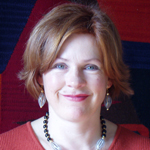 |
Siobhán Yeats, European Patent Office, Munich, Germany Read biography Siobhán Yeats was born in Dublin. She obtained a Ph.D. in genetics at Trinity College Dublin, and then worked as a post-doctoral research scientist at the Max-Planck-Institut für Biochemie, Munich. After a brief spell in industrial research, Siobhán joined the European Patent Office as a patent examiner in the field of biotechnology and later became director of a team of biotech examiners. She is currently assigned to special legal and patent tasks related to biotechnology. Her areas of interest include plants, proteomics and genomics, immunology, and stem cells. Siobhán Yeats is a regular speaker on biotech patenting and an occasional author of patent-related publications. She is a member of the European Commission's Expert Group on the Development and Implications of Patent Law in Biotechnology and has acted as an advisor on biotech patenting for a number of other organisations. |
